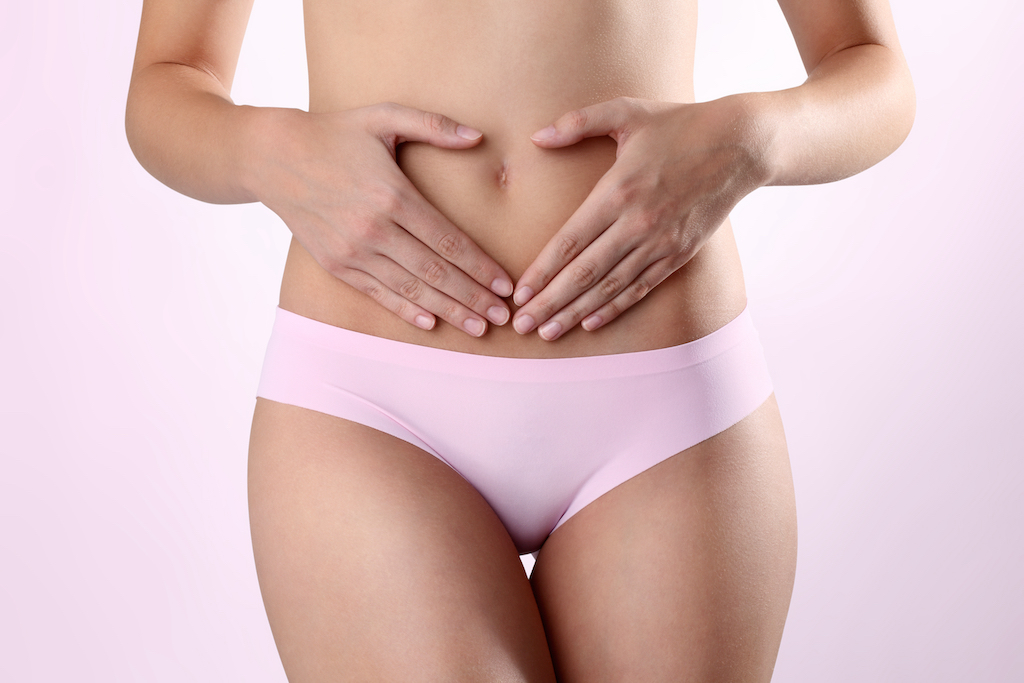
Sixteen percent of women in the U.S. suffer from vulvodynia at some point in their life. Women of all ages, races, and ethnicities are diagnosed with vulvodynia, with the highest incidence of symptoms found in women between the ages of 18-25.
Vulvodynia is defined as pain in the female genitalia (the vulva). Women suffering from vulvodynia report soreness, stinging, rawness, stabbing, throbbing, and itching pain at the vulva. They often experience painful sexual intercourse (dyspareunia), pain with sitting, and pain when wearing tight clothing, including underwear. Vulvodynia also has an enormous impact on a woman’s quality of life—impacting their home, social, personal, and professional life. Women suffering from vulvodynia often express concern and anxiety with intimacy and sexual relationships.
Causes of vulvodynia are often unclear, however, likely causes include the following:
Hormonal changes are thought to be one of the primary causes of vulvodynia. One of the primary contributors to hormonal changes in young women is the use of oral contraception (the birth control pill). The vulva is comprised of three different types of tissue and each of these tissue types may respond differently to fluctuations in hormonal levels.
It’s common practice for gynecologists to prescribe oral birth control pills to adolescent females for non-contraceptive reasons such as acne, painful and heavy periods, mood disorders, and migraines, in addition to other medical diagnoses. A large percentage of these females continue to use them once they become sexually active. On “the pill”, the female ovaries essentially shut down and prevent the production of estrogen, progesterone, and testosterone hormones. All three hormones are important for genital tissue health.
This raises the question: If the highest incidence of vulvodynia symptoms are found in women between the ages of 18-25 and hormonal changes are one of the primary causes of vulvodynia, should vulvodynia patients stop taking the birth control pill and seek other alternative means of contraception? Many research articles have been written on the impact of oral contraception on vulvodynia.
Patients with vulvodynia who are looking for an effective birth control option and want to stop taking oral birth control might consider an Intrauterine device (IUD). An IUD is a tiny T-shaped device inserted into your uterus. IUDs are divided into two different types: copper (non-hormonal IUDs) and hormonal IUDs.
The copper IUD contains no hormones. Copper is a spermicide; therefore, it is able to kill the sperm before it reaches an egg. This type of IUD works immediately after inserted and can last up to 10 years. The side effects associated with the copper IUD include cramps, bleeding between periods, and severe menstrual pain with heavy bleeding.
The hormonal IUD contains the progestin hormone and no estrogen. Progestin thickens cervical mucus and thins the lining around the uterus. The thickened mucus stops sperm from reaching the eggs. The progestin hormone can also stop ovulation. Unlike the copper IUD, this type of IUD is effective one week after being inserted and only lasts 2-5 years. Side effects associated with the hormonal IUD include headaches, acne, weight gain, breast tenderness, irregular bleeding, mood swings, cramping, and pelvic pain. Unlike oral contraceptives, the progestin in these IUDs is primarily delivered locally and, therefore, is associated with fewer side effects.
Both copper and hormonal IUDs have a 99% efficacy (copper 99.2%, hormonal 99.8%) and are both safe to use. Only 1 in 1000 women report complications and the IUD can be removed at any time. However, neither one protects against sexually transmitted diseases.
If you are currently on an oral birth control pill and suffering from vulvodynia, switching to an IUD might be a better birth control option. Before stopping the pill, discuss this option with your gynecologist or trusted healthcare provider. It’s also important to know that women suffering from vulvodynia have some degree of variation in their symptoms.
Symptoms of vulvodynia can also be caused by musculoskeletal dysfunctions and pelvic floor physical therapy may be able to help you! Rebalance Physical Therapy is an orthopedic and pelvic floor physical therapy clinic based in Philadelphia, PA. if you are tired of searching for answers and suffering from vulvodynia symptoms, schedule a visit with us and find relief for your pain!
In-Person and Online Consultations


